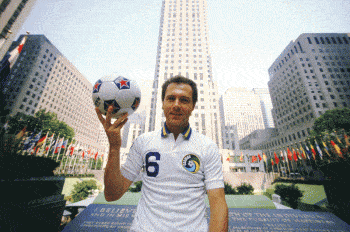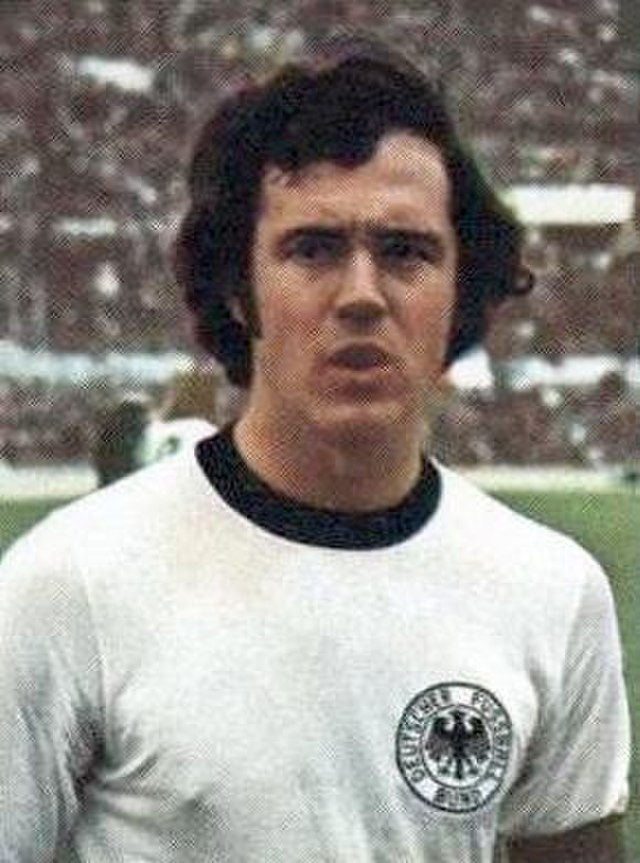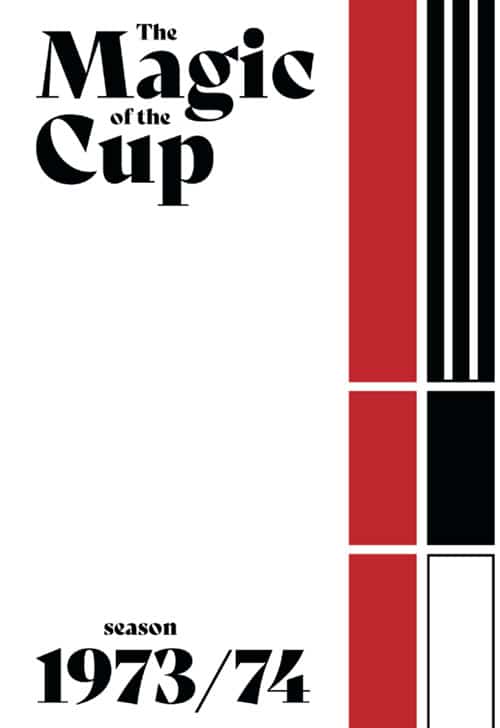There have been eureka moments, such as the advent of the magnificent Hungarians of the early ‘50s, Brazil later in the decade, the catenaccio system in Italy, Cruyff and total football. And then there was Franz Beckenbauer and the revolutionising of the sweeper system.

By Dave Bowler
Football is a pretty simple game. That’s what the coaches tell you, what Academies try to drill into kids. You get the ball, you pass it to a member of your team, you try to score goals at one end, keep them out at the other. The basic principles haven’t changed, right the way through its history, but all along the way, there have been subtle refinements, changes in laws, in methodology, in preparation, in equipment. Formations have evolved, rarely quickly but incrementally.
There can be no doubt that Beckenbauer, the Kaiser, is one of the key figures in post-war football, as player, coach and administrator. He was the central character in the rise of Bayern Munich from a team that wasn’t deemed worthy of a place in the original Bundesliga to the side that bestrode Europe little more than a decade later. And he was the man who drove the West German machine to extraordinary heights in the first half of the 1970s after they had been languishing in the international backwaters ever since the Miracle of Bern and the 1954 win.
Beckenbauer had perhaps the finest footballing brain of his generation, a player who didn’t dazzle in the way of a Best or a Cruyff, but someone who thought his way through a game, who was reading it like a chess Grandmaster, four, five, six moves ahead of the rest of the field, ghosting into positions to mop attacks up in his role as a central defender, then somehow able to steer a path out from the back, through the midfield minefield through spaces that simply opened up in front of him, spaces that were never there for other footballers.

Defensive Genius
The wonder of Beckenbauer’s football though was that it largely happened from a central defensive role, and yet he was an extraordinarily dangerous attacking weapon, in a way that the game had never seen before. It was almost as if the deep lying centre-forward role pioneered by Hungary had reached its ultimate logical conclusion, playing so deep that he was in defence.
If you think about it, there’s perfect sense in what seems like madness. After all, what team is going to go and mark the opposition’s centre half? The whole point of being a striker is to avoid going anywhere near him, which in turn means that if the sweeper can get on the ball, he will have time with it. In most cases, that’s broadly irrelevant given that distribution is not always the greatest asset of your typical central defender.
West Germany
But Beckenbauer was not a typical central defender, having made his name initially in the midfield. He didn’t have electric pace or the supreme dribbling skills of George Best, but would glide across the turf, timing late runs into the box to perfection to score his share of goals, just as he did in that famous World Cup quarter-final of 1970 when a beaten West Germany at 2-0 down suddenly found themselves back in the game through his late strike – they went on to win 3-2 in extra time and dump the holders out of the competition.
His poise, the quality of his passing and his reading of the game made him a natural sweeper, a position from which he simply dictated games, time and again finding the right run or the right pass at the right moment, spring defence into attack and setting both Bayern and West Germany off on another raid on goal. Simply, he invented, refined, perfected the modern sweeper system and he still remains its finest ever exponent.
The honours he collected in his career as a player testify to his greatness. He won both the World Cup and European Championship with West Germany and was also a beaten finalist in both. He collected three European Cups with Bayern, the World Club title, the Cup Winners’ Cup, four Bundesliga titles, and four German cups, as well as being the European Footballer of the Year in 1972 and 1976.
New York Cosmos
After playing for the star studded New York Cosmos, he hung up his boots and was quickly installed as the national team coach a la Klinsmann in more recent times. Saddled with a West German side in transition, he took them all the way to the 1986 World Cup Final where, amid stultifying humidity, Diego Maradona was simply too good for the German side.
Four years later, Beckenbauer and Germany were better prepared, tactically shrewd, organized to perfection with another all-time great, Lothar Matthaus, providing the driving force on the field. This time, their final meeting with Argentina went Beckenbauer’s way as he became the first man to captain and coach a World Cup winning side. Further spells as coach at Bayern saw him collect a Bundesliga title and the UEFA Cup, and subsequently, his skills as an administrator have been used by both club and country, most notably as head of the organizing committee of the 2006 World Cup.
But the images of Beckenbauer that will persist are of him collecting trophy after trophy in the 1970s and, above all, of him collecting the ball outside his own penalty area and then either bringing it forward himself or spraying an extraordinary into the path of a colleague to open up the opposition, finding angles that even Pythagoras would have struggled with. Some player he was.
 Dave Bowler is the author of “The Magic of the Cup 1973/74”, telling the story of Liverpool’s FA Cup win in 1974. Available here: https://www.curtis-sport.com/books –
Dave Bowler is the author of “The Magic of the Cup 1973/74”, telling the story of Liverpool’s FA Cup win in 1974. Available here: https://www.curtis-sport.com/books –
Follow the magic of the cup on Twitter: @MagicOfFACup